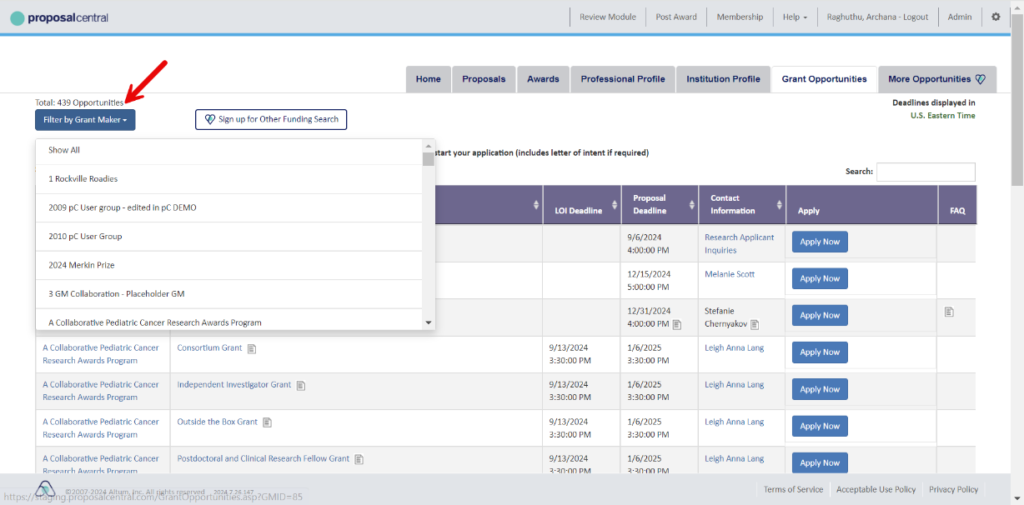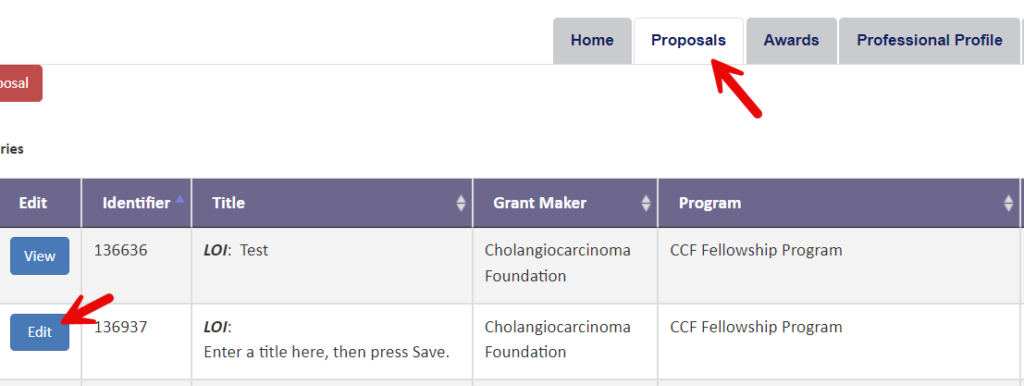2026 Research Fellowship Program
The Cholangiocarcinoma Foundation Research Fellowship Program supports early-career researchers focusing on studies in cholangiocarcinoma.
81 LOIs Received
Review Meeting takes place in Feb. 2026
New Funding Opportunities
Beginning August 1, the Cholangiocarcinoma Foundation will accept Letters of Intent for two major grant programs: the Innovation Grant and the Career Development Award (CDA). The 2025 Innovation Award, supported by the Mather Family Foundation, will provide $750,000 over three years for bold clinical trial designs and novel therapies that aim to transform cholangiocarcinoma care. The CDA offers $300,000 over three years to support mid-career investigators establishing independent research programs in cholangiocarcinoma.
2026 Recipients:
- The 2026 Career Development Award has been awarded to Dr. Rachel Guest, University of Edinburgh, UK – IDH1/2 mutations in liver cell plasticity and cholangiocarcinoma – funded by Paul Sidenblad in memory of Kathleen Sidenblad.
- The 2026 Innovation Grant has been awarded to Dr. Shishir Maithel, Northwestern Memorial Hospital, USA – Phase II, Open label, Non-randomized, Multi-institutional Study of Optimal Preoperative Therapy for Intrahepatic Cholangiocarcinoma (OPTIC) – funded by the Mather Family Foundation.
Recipients Selected for 2026
CCF Research Fellowship Program
In 2015, CCF established a Research Fellowship Program to support early-career, innovative researchers worldwide who are focused on studying cholangiocarcinoma (CCA). The program intends to help these high-quality researchers better understand the complexity of the disease and accelerate the pace of finding a cure. CCF has invested more than $3.83 million in seed funding for basic, translational, and clinical research to 71 awardees from 36 institutions in 7 countries.
CCF chooses grant recipients carefully to ensure they build collaborations between researchers, institutions, and industry and share information, samples, and expertise with others in the field. Prior experience in the field of cholangiocarcinoma is not required. Learn more about the program’s research philosophy
Research Focus:
- Basic Science: Research using laboratory-based models without clinical data from patients
- Translational Science: Research studying human samples or data obtained from human samples, annotated with clinical outcome data
- Clinical Science: Studies of outcomes in human patients; including population and epidemiology research
Degree
- Doctor of Medicine
- Doctor of Philosophy
- Doctor of Pharmacy
- Doctor of Veterinary Medicine
Academic Level
- Postdoctoral Fellows and Clinical Fellows
- Junior Faculty within first three years of appointment at the time of application; includes Instructors and Assistant Professors
Institutional Requirements
- Academic or medical, or research institutions based anywhere worldwide
- Sponsoring institutions must assign a mentor in the proposed research field who assumes responsibility and provides guidance for the research
Other Eligibility Requirements
- Prior award recipients are eligible to apply
- Prior experience in the field of CCA is not required
- There are no restrictions for applicants regarding age, gender, race, disability, or national origin/residence
Funding
- One year of grant support up to $75,000
- Funding for expenses related to the research project, which may include the salary and benefits of the grant recipient, may be used
- CCF will not fund indirect costs or institutional overhead
Topic of Interest:
CCF gives priority to funding impactful cholangiocarcinoma-associated projects related to:
- Early detection and prevention approaches, including PSC, IBD, and hepatitis-related CCA
- Radiomics and radiogenomics
- Drug discovery using various types of model systems
- Improvements in immuno-therapy for CCA
- Correlative studies related to clinical trial data or samples
- Real-world data research focused on population health and quality-related measures and outcomes
Key Components of a Letter of Intent
- Research that can impact cholangiocarcinoma patient outcomes
- Hypothesis-driven specific aims with well-designed analyses
- A feasible project completed within the period of the grant
- An identified mentor who will be able to support the project aims and the applicant
- Statistical rigor
Evaluation of Letters of Intent
- The Letters of Intent (LOI) will be reviewed by the CCF Scientific Review Committee, comprised of established clinical, translational, and basic science researchers, as well as patient research advocates. Applicants whose LOI is deemed most worthy are invited to submit complete applications
Letters of Intent Narrative
- The LOI should provide a summary of the proposed research project, specific aims and rationale, scientific approach, significance, and innovation (One-page limit)
- References (One-page limit)
- Applicant NIH Biosketch (preferred) or CV (up to five-pages)
- Mentor NIH Biosketch (preferred) or CV (up to five-pages)
- Prior awardee only should also provide a progress report and a statement of how the second year of CCF funding would lead to additional support from NIH or other sustained funding (One-page limit)
FAQs
Answers to our most frequently asked questions about the grant application process.
The number of grants in each funding cycle is determined based on the availability of funds.
Yes
Yes
Prior awardees who can demonstrate that additional support is highly likely to lead to further long-term funding will be prioritized.
No, the LOI must be received before the deadline of 11:59pm (US Eastern) on Wednesday, September 11, 2024.
When you log in to ProposalCentral, navigate to the Grants opportunity tab on the Home page.

In the Search box, search Cholangiocarcinoma Foundation and click the Apply Now buton to Initiate a Proposal.

You can also find the Opportunity by scrolling through the list in the Filter by Grant Maker dropdown.

You can access your Saved LOI
By clicking on the Identifier number from the Home tab

You can also access it via the Proposal tab by clicking on Edit next to the Identifier number.

To delete duplicate Proposals, click the Delete buton in the Proposals tab.

If you have problems with the platform, please contact ProposalCentral:
- by phone (toll-free): 800 875 2562 (Toll-free U.S. and Canada)
- by or +1 703 964 5840 (Direct Dial International)
- by email: pcsupport@altum.com
If you have specific questions about the LOI or the program offered by Cholangiocarcinoma Foundation or its guidelines, please contact the CCF Grants manager: research@cholangiocarcinoma.org